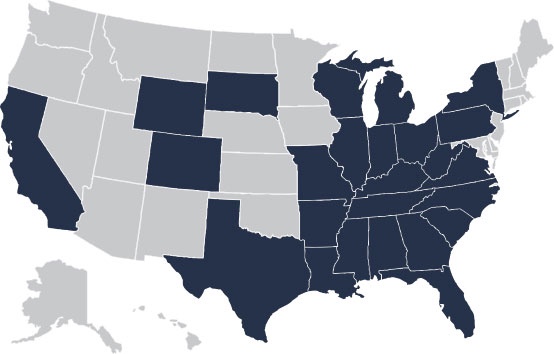
What are the basics of Kentucky wrongful death law and how does that affect the family of the victim in a fatal accident in Kentucky? Wrongful death claims in Kentucky follow rules about who can file lawsuits and how much time can elapse before filing a wrongful death claim.
Kentucky wrongful death law provides an option for individuals and families whose loved ones died because of another person’s negligence. Legally speaking, the family of a person who is the victim of a fatal accident due to another’s negligence may file a wrongful death lawsuit. Eligible parties can seek compensation for their loss. The law is very specific about how and when this can be done, however, making it important to understand some of the basics about wrongful death lawsuits in Kentucky.
Individual family members may not file wrongful death claims in Kentucky. Rather, the personal representative for the deceased person’s estate must file the lawsuit for the estate. However, individual family members are able to benefit directly if the lawsuit is successful.
The Kentucky wrongful death statute is specific about who may receive compensation (damages) if a wrongful death claim is successful. Family members are eligible to receive wrongful death compensation in this order:
1. Surviving spouse with no children: The spouse receives the entire award.
2. Surviving spouse and surviving children: The children and the spouse divide the award equally.
3. No surviving spouse, but surviving children: The children receive the entire award.
4. No surviving spouse and no surviving children: The deceased’s surviving parent or parents receive the entire award.
5. If there are no children, parents or spouse, the award goes to the deceased’s estate. After the estate’s debts are paid, the award goes to the individuals named in the deceased’s will.
Claimants in a wrongful death claim may receive damages only for specific wrongs they suffered as a result of the wrongful death of a loved one. These include:
· Lost earning power of the deceased
· Funeral bills
· Pain and suffering before death
· Medical bills before death
· Loss of consortium by a minor child or spouse
Kentucky wrongful death law does not permit damages for “loss of enjoyment of life,” as is the case in other states. However, it does allow for punitive damages if the death was the result of an intentional act or gross negligence. Such awards are not intended to be compensation for the eligible family members or the estate. Rather, punitive damages are awarded to punish the bad conduct that resulted in the death.
The amount of damages received in wrongful death claims varies enormously. Were punitive damages included? Did the deceased die instantly or did he or she suffer pain and injury before dying? How much money did he or she earn? Questions such as these and many others must be answered to arrive at a fair and just amount. Unlike other states, Kentucky does not have limits (known as “caps”) on the amount of wrongful death awards.
The Kentucky wrongful death law establishes a statute of limitations or time limit for filing a wrongful death lawsuit: The claim must be filed within one year of the person’s death or the appointment of the estate’s personal representative. This time limit may be adjusted in a very small number of cases; it is best to consult a Kentucky attorney familiar with wrongful death law with questions about how the statute of limitations applies in your case.
If you have lost a family member or loved one in a fatal truck accident, car or motorcycle crash we invite you to contact the experienced wrongful death attorneys at Hargadon, Lenihan & Herrington, PLLC or call (502) 583-9701 for a free consultation. We have helped the families of fatal accident victims to protect their rights and hold responsible parties financially accountable since 1925.
Louisville’s Most Established PI Firm
231 Breckenridge Lane, Suite 201
Louisville, KY 40207
Telephone: (502) 583-9701
Toll-Free: (866) 583-9701
Fax: 502-589-1144
Louisville Law Office Map
We've Handled All Types of Personal Injury Cases In The Following States as well as Canada and Mexico
